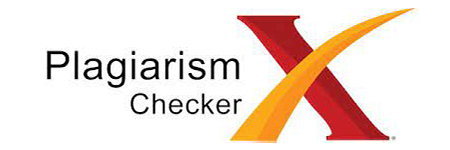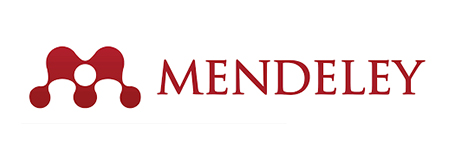Tourism Education Curriculum Adaptation Strategy in Facing Technological Developments and Digitalization
DOI:
https://doi.org/10.71094/esensi.v1i2.124Keywords:
Tourism education, Technology-based learning, Industry collaborationAbstract
Technological developments and digitalization have brought transformative changes to the global tourism industry landscape. From digital marketing, online reservations, augmented reality (AR) and virtual reality (VR) based traveler experiences, to big data analytics for service personalization, the tourism sector is now heavily reliant on digital innovation. This phenomenon requires tourism education to adapt proactively to produce relevant and job-ready graduates. This research aims to identify and analyze the adaptation strategy of the tourism education curriculum in facing the challenges and opportunities posed by technological developments and digitalization. Using a qualitative approach with a case study method, data was collected through in-depth interviews with key stakeholders (academics, industry practitioners, and alumni) as well as analysis of curriculum documents from several leading tourism educational institutions. The results of the study indicate that effective curriculum adaptation strategies include the integration of digital-oriented courses, improving lecturers' competencies in digital literacy, developing technology learning facilities, and strengthening collaboration with industry. The main challenges faced are resistance to change, resource limitations, and the dynamic pace of technological development. The implications of this study emphasize the urgency of adapting a sustainable curriculum to ensure the relevance of graduates in the increasingly digital tourism job market.
References
Bawden, D. (2008). Origins and concepts of digital literacy. In C. Lankshear & M. Knobel (Eds.), Digital literacies: Concepts, policies and practices (pp. 17-32). Peter Lang. [DOI: 10.3726/978-1-4539-0123-5]
Braun, V., & Clarke, V. (2006). Using thematic analysis in psychology. Qualitative Research in Psychology, 3(2), 77-101. [DOI: 10.1191/1478088706qp063oa]
Buhalis, D., & Law, R. (2008). Progress in information technology and tourism management: 20 years on and 10 years after the Internet—The state of eTourism research. Tourism Management, 29(4), 609-623. [DOI: 10.1016/j.tourman.2008.01.005]
Creswell, J. W. (2014). Research design: Qualitative, quantitative, and mixed methods approaches (4th ed.). Sage Publications. [DOI: 10.4135/9781452226090]
Fullan, M. (2007). The new meaning of educational change (4th ed.). Teachers College Press.
Goeldner, C. R., & Ritchie, J. R. B. (2012). Tourism: Principles, practices, philosophies (12th ed.). Wiley.
Huang, H., Chai, J., & Lee, S. K. (2016). The adoption of learning management systems in higher education: A case study of National Chengchi University, Taiwan. Educational Technology & Society, 19(3), 22-34. (Look for a specific DOI for this article if applicable)
Kolb, D. A. (1984). Experiential learning: Experience as the source of learning and development. Prentice-Hall.
Komulainen, J., & Ruohotie, P. (2002). The competence of individuals and organisations in the future. Journal of Workplace Learning, 14(3), 118-125. [DOI: 10.1108/13665620210423710]
Kwok, S. K., & Tso, A. (2012). Challenges and prospects of e-learning in higher education: A case study of Hong Kong. International Journal of Distance Education Technologies, 10(1), 1-13. [DOI: 10.4018/jdet.2012010101]
Liu, S., Shi, X., & Xiao, Y. (2019). Digital transformation in tourism: From an information technology perspective. Journal of Destination Marketing & Management, 11, 17-27. [DOI: 10.1016/j.jdmm.2018.10.001]
Manyika, J., Chui, M., Miremadi, M., Doshi, S., Woetzel, J., Mohamed, K., & Boursiac, P. (2017). Jobs lost, jobs gained: Workforce transitions in a time of automation. McKinsey Global Institute.
Mariani, M. M., Buhalis, D., Longhi, C., & Stankov, U. (2016). Tourism management, marketing, and development: The importance of networks and big data analytics. Journal of Destination Marketing & Management, 5(2), 97-101. [DOI: 10.1016/j.jdmm.2016.03.002]
Porter, M. E. (1985). Competitive advantage: Creating and sustaining superior performance. Free Press.
Sigala, M. (2018). New technologies in tourism: From smart to ambient systems. Current Issues in Tourism, 21(9), 1017-1021. [DOI: 10.1080/13683500.2018.1437145]
Werthner, H., & Klein, S. (1999). Information technology and tourism: A challenging relationship. Springer. [DOI: 10.1007/978-3-7091-6363-4]
World Travel & Tourism Council (WTTC). (2017). Skills for the future: Addressing the talent gap in travel & tourism. WTTC.
Downloads
Published
Issue
Section
License
Copyright (c) 2025 Rizki Sumardani, Bagas Anggara, Muharis, Fardiatunisa, Dwi Ananda (Author)

This work is licensed under a Creative Commons Attribution-ShareAlike 4.0 International License.










